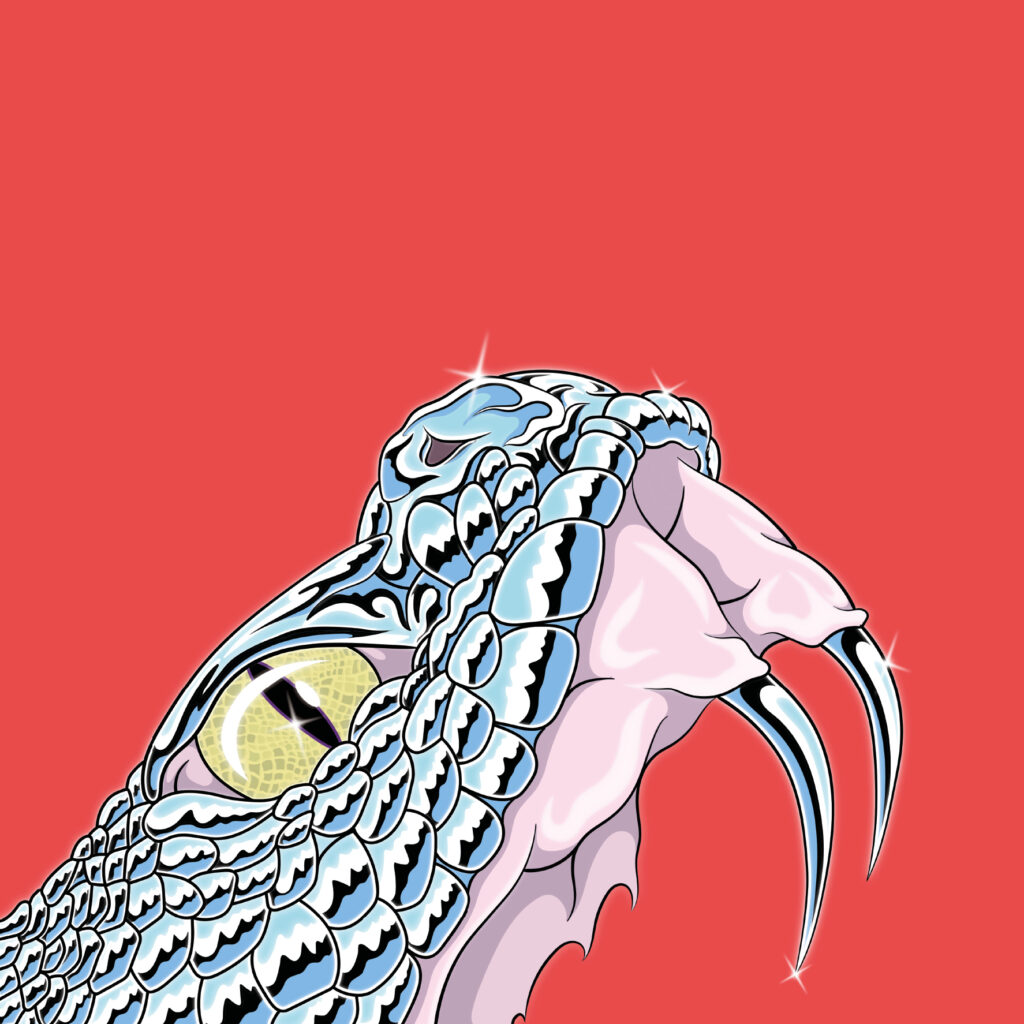
Combining richly analogue 80s-style synths, skittering, Fairlight-style beats and wind tunnel guitar noise with the sort of punishing vocal approach (courtesy of Old Man Gloom’s Aaron Turner) that forced Godflesh’s Streetsweeper into your consciousness, Pharoah Overlord’s 6 is an unholy melding of influences that is as unhinged as it is strangely addictive. Drawing from a range of disparate elements from Ulver to Nine Inch Nails via Fields Of The Nephilim and Godflesh, that the whole, 40-minute LP plays out like a live set being held in some godforsaken attic in a bohemian suburb only adds to the strange immediacy of the piece and there’s no question that Pharaoh Overlord have hit on something satisfyingly unique, even in today’s cynical and crowded musical marketplace.
The LP opens with the toughened industrial thump of Path Eternal, a track that draws together Depeche Mode, the aforementioned Godflesh and Fields of the Nephilim and sends them spinning out into the night, dosed up on Ketamine and mumbling incoherently. Strip away the vocals and the churning bass sequences and shimmering leads would provide a compelling soundtrack to 80-spandex-a-thon The Running Man. However, taken as it is, the gruff vocal delivery is nowhere near as incongruous as it first appears, and as the layers of reverb and delay pile up, so you’re pulled into a netherworld where S&M clubs became the norm and the whole world dresses in leather and feathers. Arms Of The Butcher serves to emphasise the LP’s appeal. Superficially simplistic, the creeping guitar lines recall Lindsay Buckingham’s contribution to Hesitation Marks, while moustachioed maestro John Carpenter’s influence can be felt in the repetitive synth leads that keep a sense of melody to the fore. The LP continues to expand its own sonic horizons as the listener is plunged into the seething Without Song All Will Perish, a track that has much in common with Ulver’s most recent incarnation and, like Ulver, the track’s eight-minute runtime somehow feels entirely unforced to the extent that it comes as a genuine surprise when it suddenly collapses in on itself.
Arguably the track most likely to make a single, Tomorrow’s Sun recalls Aphex Twin’s sporadically brilliant 26 Mixes For Cash LP, with every disparate element perfectly embedded into the whole until it sounds like the most natural form in the world. Built around a danceable beat, it neatly paves the way for the hypnotic, fourteen-minute finale, Blue Light Hum. Aptly named and well-positioned, Blue Light Hum sees clean vocals, albeit wreathed in reverb, and mid-tempo beats bringing the party to a close, as silhouetted figures bob and weave amidst the low lights and dry ice. Edging into post-rock territory, Blue Light Hum finds beauty in repetition and depth in myriad details that lie just beneath the surface, waiting to be uncovered by patient listeners, willing to take the trip over and again. As the track progresses, so the feeling that the entire LP was leading up this point becomes an inescapable conclusion, and the record ends on a high that will have you reaching for the play button the moment it spins to a halt.
Pharaoh Overlord’s 6 is a wonderful LP that reveals its charms slowly. Although there is precedent for the deftly interwoven elements the band employ (the most obvious touchstones being Justin Broadrick, Ulver and Nine Inch Nails), the duo nevertheless manage to weave them into their own unique soundscapes, the beauty of which is only fully revealed when the listener takes time to allow the music to flood over them (preferably at a volume that crumbles the foundations). Challenging, yet also hypnotic, the LP is even beautiful at times, the ambient noise of epic closer Blue Light Hum in particular, forever caught between art rock and the ambient approach of Orbital’s In Sides. An unexpected highlight of a challenging year, 6 offers something genuinely unique and is all the more satisfying for it. 9/10



